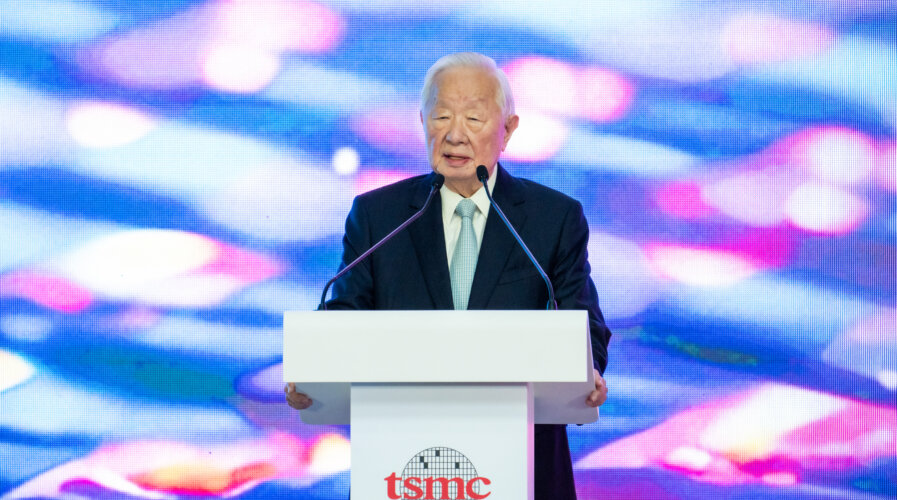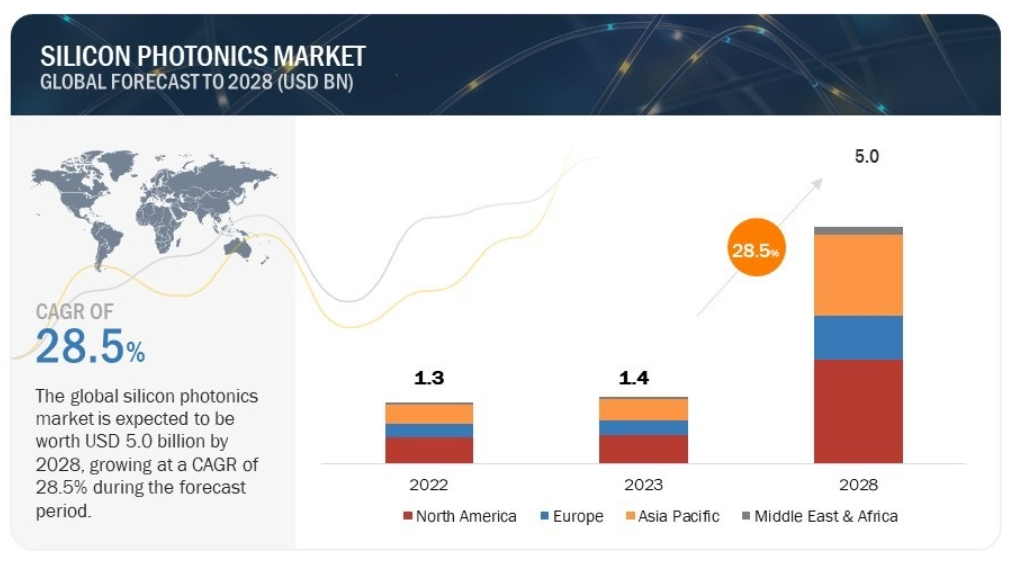TSMC, the world's leading chip manufacturer, is placing a significant bet on silicon photonics to drive growth in the industry. Silicon photonics has gained prominence in recent years, driven by the evolving landscape of data centers. The demand for faster data transmission speeds, energy efficiency, and increased scalability has made silicon photonics a crucial component in data center infrastructure.

Although the technology has been commercially utilized for over a decade, it has never reached mainstream status due to the dominance of Moore's Law scaling, which met most power and performance requirements at a lower cost. Silicon photonics has primarily been limited to applications such as networking chips, where price is less of a factor and low latency and power consumption are critical.
However, the rapid evolution of technologies has led to an increasing need for bandwidth, especially with the rise of AI applications like ChatGPT. As a result, more semiconductor players, including TSMC, are exploring the potential of silicon photonics. TSMC announced its significant investment in silicon photonics, aiming to leverage its benefits for improved performance, energy efficiency, and computing power in AI applications.
Silicon photonics combines two significant inventions of the 20th century, the silicon integrated circuit, and the semiconductor laser, enabling faster data transfer over longer distances compared to traditional electronics while utilizing the efficiencies of silicon. Intel Corporation, one of the pioneers in silicon photonics, has highlighted these advantages on its website.
The silicon photonics market is currently experiencing a revolution led by major players like Intel, Cisco Systems, Acacia Communications, and NeoPhotonics Corporation. According to a report by MarketsandMarkets, the silicon photonics market was valued at $1.3 billion in 2022 and is projected to reach $5 billion by 2028, growing at a compound annual growth rate (CAGR) of 28.5% from 2023 to 2028.

In the Asia Pacific region, the market for silicon photonics is expected to generate the largest revenue by the end of 2035. The growth in this region is primarily driven by the increasing number of data centers and the growing demand for high-speed internet connections.
As the world's largest contract chipmaker, TSMC is looking to enhance performance and address critical issues of energy efficiency and computing power in AI applications. TSMC's Vice President, Douglas Yu, stated that a well-designed silicon photonics integration system can provide solutions for these challenges. TSMC is currently developing technologies to build an integrated system using its advanced chip stacking and packaging technologies. This integrated system will combine and connect silicon photonics with different types of chips. However, it is still in the development stage and mass production has yet to be achieved.
In summary, TSMC's significant investment in silicon photonics underscores its potential to improve performance, energy efficiency, and computing power for AI applications like ChatGPT. The growing demand for faster data transmission and increased scalability in data centers has elevated the importance of silicon photonics in the industry, making it a critical building block for future technological advancements.







